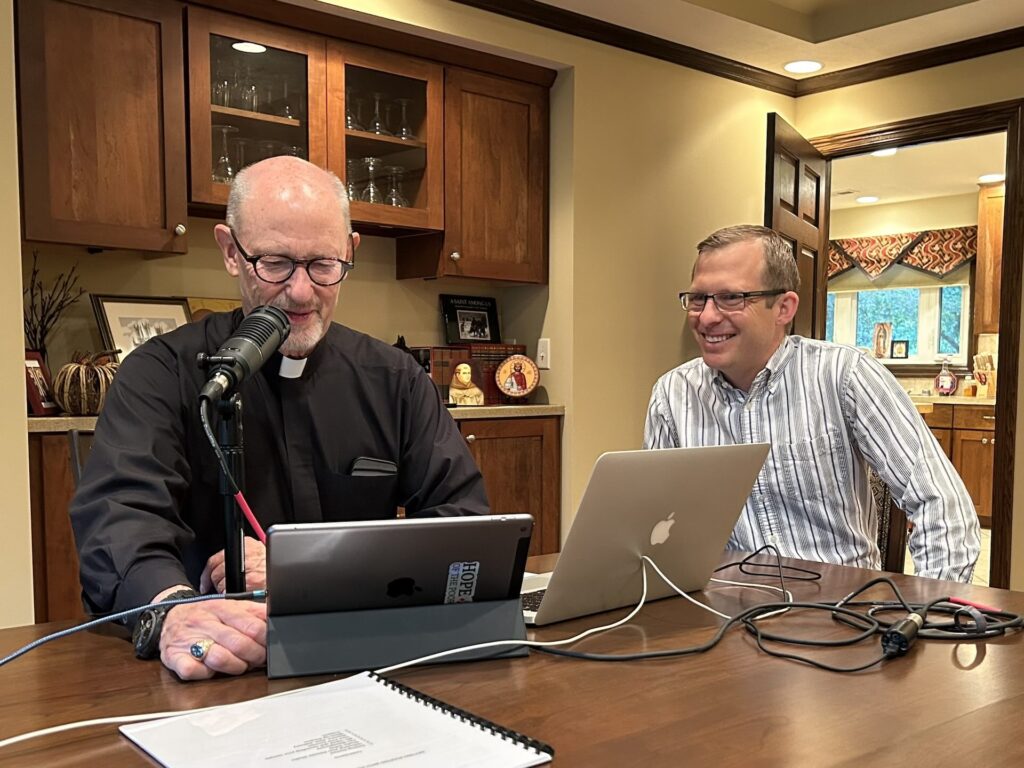Precept 3: You shall receive the sacrament of the Eucharist at least during the Easter season.
The third precept builds on the second, which builds on the first.
We want to treat the Day of the Lord as centered on God in the Mass, prayer, and his people.
We want to confess our sins not just to be free from guilt but also to unite ourselves to our Lord by offering ourselves to the Father in Christ and then receiving Christ’s body, blood, soul, and divinity in the Eucharist on Sundays, and holy days of obligation— even every day if possible.
The goal is not to get confession and communion over with for the year.
Instead, the goal is to become more able to resist sin and more often able to receive the Lord’s strength sacramentally from his body and blood.
During Lent especially, confession is offered widely.
This tradition is connected to the duty to receive the Eucharist once “at least during the Easter season.”
Salvation, as theologians often say, is about two things: being saved from sin and being lifted up to God.
In the Eucharist, we are given union with the whole Christ.
Unlike ordinary food, which gets converted into us, the Eucharist converts us into Christ— to make us true Christians.
Though it is a supernatural meal, it is not magic.
Simply eating the meal of “thanksgiving” (which is what “eucharist” means) is not enough.
We must allow ourselves to be converted by thanking God for this transforming union and acting on it.
If we have returned to the practice of our faith because of the precept, we need to go beyond this— to get back to regular attendance at Mass, confession when we need it, and more communion with Christ.
If we have friends who have discovered or returned to doing what people used to call their “Easter duty,” we need to encourage them to turn that easter duty into a delight.
We can do this by setting an example by consistently honoring Sunday and examining our consciences so that we can receive the Eucharist and desire Christ more strongly.
Then, those who return will have the ability to realize that even a minimum Christianity will involve other behaviors than just receiving the eucharist.
And that’s what the final two precepts, which we will cover over the next two days, are about.
In your time of prayer today, consider the gift of Jesus Christ in the eucharist.
Do you long to receive our Lord in the Eucharist?
Do you long to be lifted up to God— to the all good Father— in the body of his Son?




